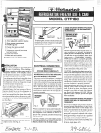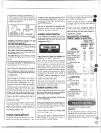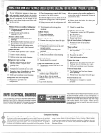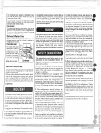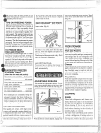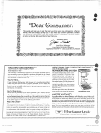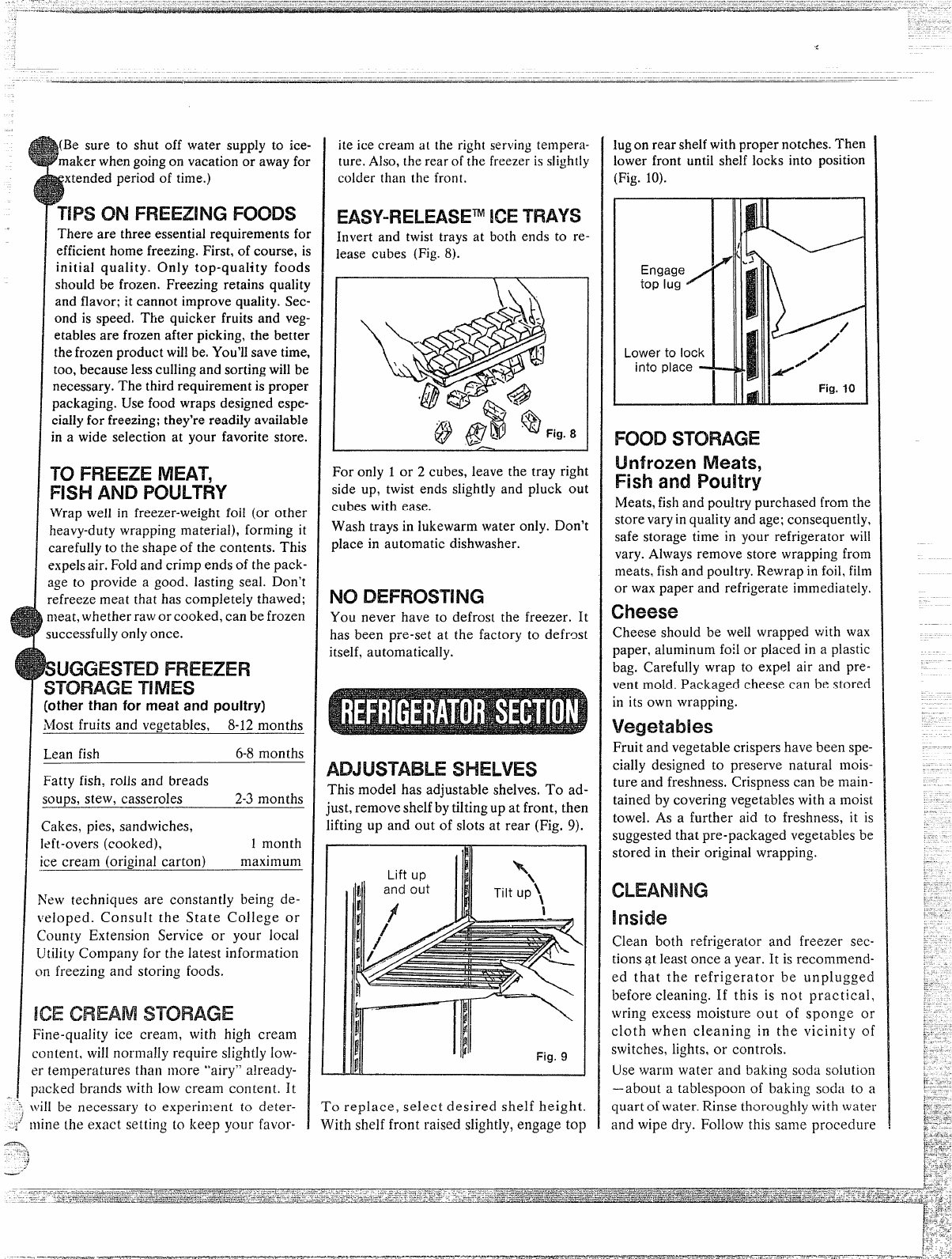
(
(
.
)
(Be sure to shut off water supply to ice-
maker when going on vacation or away for
xtended period of time.)
‘m% CmlFREEZING iFcxDs
There are three essential requirements for
efficient home freezing, First, of course, is
initial quality. Only top-quality foods
should be frozen. Freezing retains quality
and flavor; it cannot improve quality. Sec-
ond is speed. The quicker fruits and veg-
etables are frozen after picking, the better
the frozen product will be, You’llsave time,
too, because less culling and sorting will be
necessary, The third requirement is proper
packaging. Use food wraps designed espe-
cially for freezing; they’re readily available
in a wide selection at your favorite store.
l-cl FREEZE MEAT,
Ha+ AND FOLILTFW
Wrap well in freezer-weight foil (or other
heavy-duty wrapping material), forming it
carefully to the shape of the contents. This
expels air. Fold and crimp ends of the pack-
age to provide a good, lasting seal. Don’t
refreeze meat that has completely thawed;
meat, whether raw or cooked, can be frozen
uccessfully only once.
iNKiGEsTEDFREEZER
JTORAGETIMES
(other than for meat and poultry)
fi40st fruits and ve~etables,
8-12 months
Lean fish
6-8 months
Fatty fish, rolls and breads
soups, stew, casseroles
2-3months
Cakes, pies, sandwiches,
Ieft-overs (cooked),
1 month
ice cream (ori~inal carton)
maximum
New techniques are constantly being de-
veloped. Consult the State College or
County Extension Service or your local
Utility Company for the latest information
on freezing and storing foods.
ICECREAMSTORAGE
Fine-cluality ice cream, with high cream
content, will normally require slightly low-
er temperatures than more “airy” already-
packed brands with low cream content. It
will be necessary to experiment to deter-
mine the exact setting to keep your favor-
te ice cream at the righ( serving tempera-
ture.Also, the rear of the freezer is slightly
wkler than the front.
3dYI’-FELEASEm!(2ETRAYS
nvert and twist trays at both ends to re-
~ase cubes (Fig. 8).
or only 1 or 2 cubes, leave the tray right
de up, twist ends slightly and pluck out
~bes with ease.
~ashtrays in lukewarm water only. Don’t
ace in automatic dishwasher.
10DEFROSTING
ou never have to defrost the freezer. It
LSbeen pre-set at the factory to defrmt
elf, automatically.
DJUSTABLESHELVES
his model has adjustable shelves, To ad-
st, remove shelf by tilting up at front, then
ting up and out of slots at rear (Fig, 9).
To replace, select desired shelf height.
With shelf front raised slightly, engage top
lug on rear shelf with proper notches. Then
lower front until shelf locks into position
(Fig. 10).
t
,
T
[
Engage
top lug
a
/
,/
1
Fig, 10
I
FOOD STORAGE
unfrozenMeats,
Fish and
Poultry
Meats, fish and poultry purchased from the
store vary in quality and age; consequently,
safe storage time in your refrigerator will
vary. Always remove store wrapping from
meats, fish and poultry. Rewrap in foil, film
or wax paper and refrigerate immediately,
cheese
Cheese should be well wrapped with wax
paper, aluminum foil or placed in a plastic
bag. Carefully wrap to expel air and pre-
vent mold. Packaged cheese can be stored
in its own wrapping.
vegetables
Fruit and vegetable crispers have been spe
cially designed to preserve natural mois
ture and freshness. Crispness can be main
tained by covering vegetables with a mois
towel, As a further aid to freshness, it i:
suggested that pre-packaged vegetables bt
stored in their original wrapping.
CLEANING
Inside
Clean both refrigerator and freezer sec
tions at least once a year. It is recommend
ed that the refrigerator be unplugget
before cleaning. If this is not practical
wring excess moisture out of sponge o
cloth when cleaning in the vicinity o
switches, lights, or controls.
Use warm water and baking soda solutio]
—about a tablespoon of baking soda to ,
quart of water. Rinse thoroughly with wate
and wipe dry. Follow this same procedur



